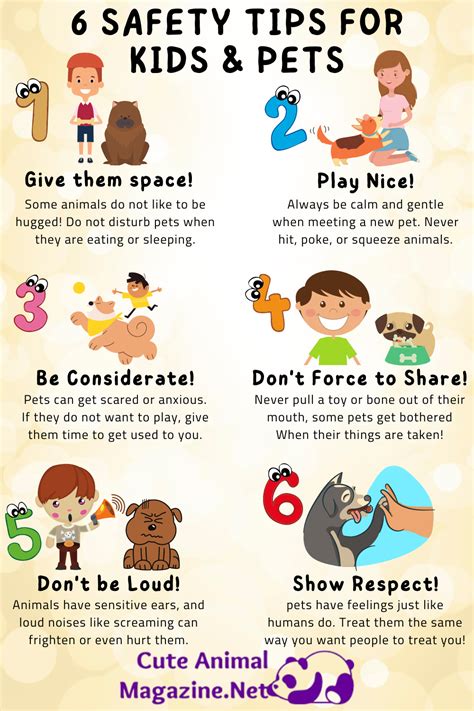Introduction
Pets are cherished members of our families, providing us with unconditional love and companionship. However, it’s imperative to prioritize their safety to ensure their well-being and prevent potential hazards that could compromise their lives. Here, we present 5 crucial pet safety tips to safeguard your furry friends.

1. Microchip Your Pet: The Ultimate Lifeline
According to the American Humane Society, approximately 10 million pets are lost in the United States annually. Microchipping your pet provides a permanent and secure identification method that can significantly increase the chances of a safe return if they ever stray or become separated from you. These chips are implanted under the skin and contain a unique identification number linked to your contact information.
2. Leash Responsibility: Prevent Unleashed Perils
While pets enjoy the freedom of roaming outdoors, it’s crucial to keep them on a leash whenever they are not in a fenced area. Unleashed pets pose several hazards, including:
- Traffic accidents: Unrestrained dogs may run into the street and get hit by cars.
- Other animals: Unleashed pets may encounter aggressive dogs, wild animals, or even venomous snakes, leading to injuries or fatalities.
- Lost pets: Pets that wander off-leash have a higher risk of becoming lost and never finding their way home.
3. Pet-Proof Your Home: A Safe Haven
Your home should be a sanctuary for your pets, free from potential risks. Conduct a thorough inspection to identify and eliminate any hazards, such as:
- Electrical cords: Exposed or chewed cords can cause electrical shocks or burns.
- Toxic plants: Some common houseplants, such as lilies and oleanders, are highly toxic to pets.
- Household chemicals: Cleaning supplies, pesticides, and fertilizers should be stored securely out of reach.
4. Stay Vigilant Around Water
Pets, particularly young ones, may be drawn to bodies of water. However, it’s crucial to supervise them closely while they’re near water, as they can easily slip and fall in. If your pet does fall into the water, don’t hesitate to jump in to save them. Always wear a life jacket when swimming with your pet.
5. Educate Yourself on Pet Health Issues
Regularly educate yourself about common pet health issues and their symptoms. Early detection and treatment are vital for ensuring your pet’s well-being. Additionally, maintain regular veterinary check-ups for vaccinations, parasite control, and general health assessments.
Conclusion
By following these pet safety tips, you can minimize risks and provide your furry companion with a safe and healthy environment. Remember, their well-being is in your hands. Embrace these practices and enjoy the unwavering love and companionship of your pet for years to come.





















